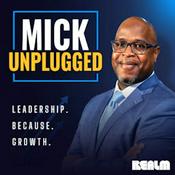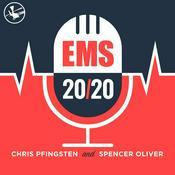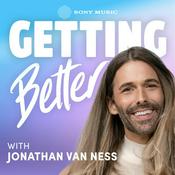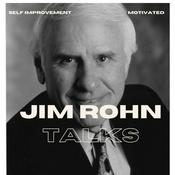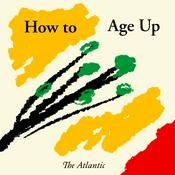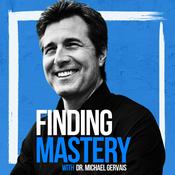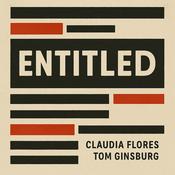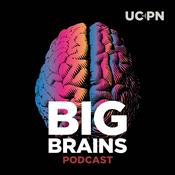154 episodes
- In this episode, we sit down with Stanford political scientist Andy Hall and PhD candidate Graham Straus to unpack their new paper, “How Accurately Did Claude Code Replicate and Extend a Published Political Science Paper?” — an empirical audit of what happens when an AI agent is asked to replicate and extend a real research project.
Last January, Andy asked Claude Code to generate an extension of an existing empirical political science paper in under an hour. The results were surprising: Claude correctly replicated the original estimates exactly and collected new data with very high accuracy. But did Claude make mistakes? Straus independently audited Claude’s work to see how accurate, reliable, and scientifically sound it really was.
Hosted by Simplecast, an AdsWizz company. See pcm.adswizz.com for information about our collection and use of personal data for advertising. - Do members of Congress vote differently when they are worried about winning their party’s primary election? On today's episode, Ethan and Wioletta interview Anthony about his forthcoming paper, “Do Primary Elections Exacerbate Congressional Polarization?,” which is forthcoming from the Journal of Politics.
Using detailed voting data and the natural variation in primary election timing across states, Anthony and his co-author, Shu Fu, show that primaries play a surprisingly small role in pushing lawmakers to the ideological extremes—accounting for only about 1% of congressional polarization.
Hosted by Simplecast, an AdsWizz company. See pcm.adswizz.com for information about our collection and use of personal data for advertising. - Do politicians really understand what drives voters—or are they relying on flawed assumptions that could shape democracy in troubling ways?
As we take some time off for the holidays, we wanted to re-share our episode with University of Calgary political scientist Jack Lucas, whose paper “Politicians’ Theories of Voting Behavior,” reveals striking gaps between how politicians perceive voters and how voters see themselves. While politicians often hold a cynical, “democratic realist” view of voters, citizens are far more optimistic about their own behavior. But who’s right—and does it even matter?
Hosted by Simplecast, an AdsWizz company. See pcm.adswizz.com for information about our collection and use of personal data for advertising. - In this episode, we speak with Cory Clark, behavioral scientist and Associate Professor of Psychology at New College of Florida. We discuss her paper, “Taboos and Self-Censorship Among U.S. Psychology Professors," which explores how controversial topics in science are perceived, debated, and sometimes suppressed, and the psychological dynamics of taboo beliefs and self-censorship in academia.
Hosted by Simplecast, an AdsWizz company. See pcm.adswizz.com for information about our collection and use of personal data for advertising. - There is no political topic that can get people’s blood boiling quite like partisan gerrymandering. But what do we know about how effective it is and what the data shows about its outcomes?
This week, we're re-releasing our conversation with Princeton political scientist Kosuke Imai about his paper, "Widespread Partisan Gerrymandering Mostly Cancels Nationally, But Reduces Electoral Competition.” He uses a novel methodological approach to try and document the effect of partisan gerrymandering. What he finds is surprising and may lead people who participate in it to re-think whether it’s worth the effort.
Link to paper: https://www.pnas.org/doi/10.1073/pnas.2217322120
Hosted by Simplecast, an AdsWizz company. See pcm.adswizz.com for information about our collection and use of personal data for advertising.
More Education podcasts
Trending Education podcasts
About Not Another Politics Podcast
With all the noise created by a 24/7 news cycle, it can be hard to really grasp what's going on in politics today. We provide a fresh perspective on the biggest political stories not through opinion and anecdotes, but rigorous scholarship, massive data sets and a deep knowledge of theory. Understand the political science beyond the headlines with Harris School of Public Policy Professors William Howell, Anthony Fowler and Wioletta Dziuda. Our show is part of the University of Chicago Podcast Network.
Podcast websiteListen to Not Another Politics Podcast, Mick Unplugged and many other podcasts from around the world with the radio.net app
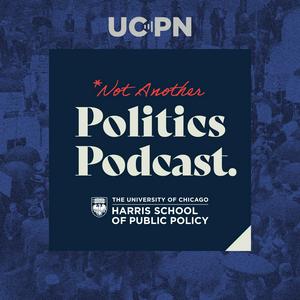
Get the free radio.net app
- Stations and podcasts to bookmark
- Stream via Wi-Fi or Bluetooth
- Supports Carplay & Android Auto
- Many other app features
Get the free radio.net app
- Stations and podcasts to bookmark
- Stream via Wi-Fi or Bluetooth
- Supports Carplay & Android Auto
- Many other app features


Not Another Politics Podcast
Scan code,
download the app,
start listening.
download the app,
start listening.

